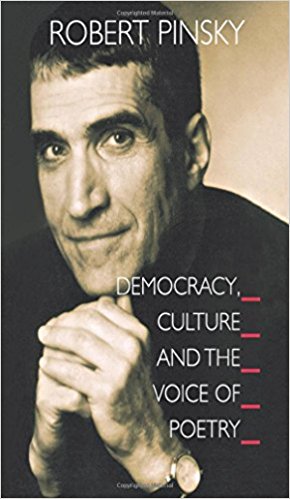
review by José Angel Araguz
Drawing inspiration from German physicist Werner Heisenberg’s uncertainty principle, which “states that the more precisely the position of some particle is determined, the less precisely its momentum can be known, and vice versa,” Susan Lewis’ latest collection, Heisenberg’s Salon (BlazeVOX [books]), presents a prose poem collection that evokes the form’s surrealist traditions while expanding on its logic-making means.
One can see this idea of position and momentum reformulated in poetic terms in these lines from the title poem:
Every time she turned her back, the apartment rearranged itself. Each version created a home for another way of life.
From there, the reader follows the main character adapting to her constantly rearranging apartment, curling up and reading Victorian fiction when she “[discovers] the couch under the picture window,” and setting the next meal when “the dining table was there instead.” In a similar manner, the reader of this collection adapts to each poem’s engagement with and rearrangement of familiar linguistic territory. The aptly named “Indeterminacy” is a good example of adapting to rearrangement:
Indeterminacy
It was time for something, although she could not for the life of her imagine what. So she assumed her post on the stoop & waited for the future to declare itself. A tattered bird of dubious provenance landed on the banister & inspected her with his ancient gaze. She exhaled with emphasis, but otherwise managed to keep her preconceptions to herself. The old fellow cocked his head & screeched. Terrific, she said. How am I supposed to know if you’re the one I’m waiting for? Terrific, he squawked. How am I supposed to know if you’re the one I’m waiting for? I get it, she said, bravely extending her arm. I get it, he echoed, latching on with admirable decision. It was the last conversation they ever had.
Here, the first half of the poem positions two characters in places of waiting. There is a push and pull between interiority and meaning at work; because “she could not for the life of her imagine what” it was time for (keyword here being imagine, an act of interiority), she is forced to look outside herself. Thus positioned, the conversation that takes place in the second half of the poem works as momentum, giving the scene the urgency of question and response. The phrasing of a “tattered bird” also leaves things ambiguous; one can envision a parrot playing out the conversation that follows, merely echoing the other character. And yet, the choice to not be specific about the kind of bird it is leaves room for the fantastical. From this uncertainty, the imagining the other character was incapable of on her own becomes an outer moment of imagination via this “conversation” with the bird.
This transformation via uncertainty plays out for the reader much like the conversation plays out for the characters, strictly in the moment, in the rush as the pieces of the poem come together. There is a thrill in this kind of poetry that speaks of a sensibility awake to the materials at the core a poem, how to get the “tattered bird” of familiar language to say something new. As plot requires conflict, these poems point to lyricism as its pulse.
One of the ambitions of this collection is learning how to be awake to this lyric pulse. The reading act is itself a combination of position and momentum, holding words still in the mind while moving towards the sense implied. In a way, the reader of Heisenberg’s Salon is in the same position as the boy of “One Day” (below) who finds himself literally embodying change, watching the world evolve as the poem develops. Certainty and uncertainty, this collection posits, both happen suddenly and simultaneously. As in the uncertainty principle, one is reckoning with ideas of position and momentum in these poems. Yet, because they are poems – poems whose essence can only be located within the act of reading and being heard, thus, in motion – the interplay leads the reader to a fruitful uncertainty, and, one could say, a lyric certainty.
One Day
grass started growing form the young man’s chest. Everybody changes, said his mother, surreptitiously dabbing at her eyes. But the boy, who was wise beyond his years, felt delicate roots tickling his sternum & knew it was a matter of time before they’d probe his lungs & entwine his heart, crowding the space it needed to expand & contract in its steadfast commitment to preserving his options. As the weeks passed, graceful green strands sprung from his armpits, between his legs, & even, in the finest possible wisps, from his upper lip. One morning he awoke from a luxurious dream of water glossing boulders as smooth & warm as flesh to find a starry sprinkle of tiny yellow blossoms adorning his burgeoning tufts. He had only to be still & tiger swallowtails floated around him, sipping his nectar. Unable to deny the inexorable slowing of his breath, he was content to observe himself contemplate the ramifications of his personal evolution without emitting a watt of excess heat or other sign of agitation.
*
 Influence Question: How does this collection reflect your relationships/history with the prose poem? What writers have influenced your sense of sentence and story?
Influence Question: How does this collection reflect your relationships/history with the prose poem? What writers have influenced your sense of sentence and story?
Susan Lewis: I love the prose poem! Brevity and density are its challenge and its promise. To paraphrase Whitman, it contains multitudes — like the power to embrace or eschew narrative, meter, syntax, and even the sentence itself.
I began working with the more narratively driven poems in Heisenberg’s Salon as a kind of emotional and intellectual R & R after being immersed in another collection of prose poems (currently called Zoom) which are far more abstract, fragmented, and entangled on the lexical meta-level. This was not my first time exploring this sub-genre: my book, How to be Another, gathered a group of tale-like creatures in the section called e.g. (reflecting my notion that narrative proffers examples, rather than, say, arguments, restatements, or prescriptions — like the other poems assembled under the headings vis, i.e., and Rx).
The rhythms, architecture, and verbal texture of these poems, however, are quite different than those earlier pieces. And my critique of categories, boundaries, and borders has intensified (in the geopolitical context as well). A fish confined to a small container stays a small fish. The same can be said for a psyche. Any insistence on us vs them deprives ‘us’ of the (sometimes challenging) benefit of ‘their’ company and perspective. For this book, I found a kind of metaphorical support for this principle of inclusivity in quantum indeterminacy.
My love of the prose poem dates back to my introduction (thanks to my friend and mentor Chuck Wachtel) to Julio Cortázar’s seminal The Lines of the Hand, and Russell Edson’s Dinner Time, both of which can be relied upon, in a pinch, as complete guides to writing of any kind — be it short story, novel, or poem. (Which is to inveigh, once again, against the unhelpful constraints of such categories).
Cortázar’s other very short works, like many in Cronopios and Famas, and all of Edson’s oeuvre, have wormed their way into my sense of timing and ‘turn.’ Their compressed journeys draw an arc from premise, to ramification and extrapolation, to conclusion — which in different pieces might be more or less conclusive, and more or less shocking, or absurd. They model a kind of imaginative and investigatory digging — deeper, absolutely, but also laterally, towards new terrain — which ends up yielding a skewed and oddly clearer view of their starting positions.
The poems in Heisenberg are also deeply indebted to the work of Lydia Davis and James Tate, both of whom transform the ordinary into the extraordinary by penetrating, judicious, and genuinely inspired elisions, containments, and departures. And Kafka looms over all of us who touch on the surreal in the hope of exposing the tragic absurdity of the real.
*
Special thanks to Susan Lewis for participating! Find out more about her work at her site. Heisenberg’s Salon can be purchased from BlazeVOX [books].
Advertisements Share this:- Share





